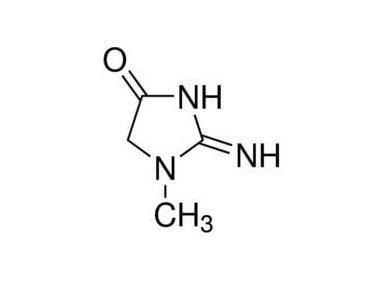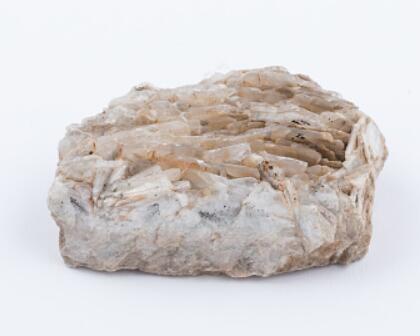Diagnostic use of Creatinine
Jul 14,2022

Diagnostic use
Serum creatinine is the most commonly used indicator (but not direct measure) of renal function. Elevated creatinine is not always representative of a true reduction in GFR. A high reading may be due to increased production of creatinine not due to decreased kidney function, to interference with the assay, or to decreased tubular secretion of creatinine. An increase in serum creatinine can be due to increased ingestion of cooked meat (which contains creatinine converted from creatine by the heat from cooking) or excessive intake of protein and creatine supplements, taken to enhance athletic performance. Intense exercise can increase creatinine by increasing muscle breakdown. Dehydration secondary to an inflammatory process with fever may cause a false increase in creatinine concentrations not related to an actual kidney injury, as in some cases with cholecystitis.[citation needed] Several medications and chromogens can interfere with the assay. Creatinine secretion by the tubules can be blocked by some medications, again increasing measured creatinine.
Serum creatinine
Diagnostic serum creatinine studies are used to determine renal function.The reference interval is 0.6–1.3 mg/dL (53–115 μmol/L).Measuring serum creatinine is a simple test, and it is the most commonly used indicator of renal function.
A rise in blood creatinine concentration is a late marker, observed only with marked damage to functioning nephrons. Therefore, this test is unsuitable for detecting early-stage kidney disease. A better estimation of kidney function is given by calculating the estimated glomerular filtration rate (eGFR). eGFR can be accurately calculated without a 24-hour urine collection using serum creatinine concentration and some or all of the following variables: sex, age, weight, and race, as suggested by the American Diabetes Association.Many laboratories will automatically calculate eGFR when a creatinine test is requested. Algorithms to estimate GFR from creatinine concentration and other parameters are discussed in the renal function article.
Creatinine is a chemical waste product in the blood that passes through the kidneys to be filtered and eliminated in urine. The chemical waste is a by-product of normal muscle function.The more muscle a person has, the more creatinine they produce.
Levels of creatinine in the blood reflect both the amount of muscle a person has and their amount of kidney function.Most men with normal kidney function have approximately 0.6 to 1.2 milligrams/deciliters (mg/dL) of creatinine. Most women with normal kidney function have between 0.5 to 1.1 mg/dL of creatinine.
Women usually have lower creatinine levels than men because women, on average, have less muscle than men.Other factors that may affect the level of creatinine in the blood include body size, activity level and medications.Creatinine and chronic kidney diseaseWhen there is kidney damage or kidney disease, and the kidneys are not able to filter waste efficiently, there will likely be a rise in creatinine levels in the blood. Dialysis is needed whenever kidney function is too low to maintain health. However, creatinine is just one of many factors considered when deciding whether or not to recommend dialysis treatment.
- Related articles
- Related Qustion
- Creatinine: A Key Compound in Biochemical Research Nov 4, 2024
Creatinine a nitrogenous waste product is particularly notable in fields such as nephrology, pharmacology, and toxicology.
- Causes of abnormal creatinine levels and symptoms Oct 8, 2019
A high level of creatinine is not a direct cause of symptoms, and patients with above-normal levels of creatinine may notice no change. Symptoms associated with high creatinine are most often caused by an underlying illness that affects kid
- Biological Significance of Creatinine Oct 8, 2019
Creatinine is a chemical waste product of creatine phosphate metabolism by skeletal muscle tissue as part of normal daily activity. It is a non-protein made by the body and is used to supply energy mainly to muscles.
Barite (baryte, barytes; BaSO4) is the most abundant barium mineral in the Earth's crust. It has orthorhombic symmetry, forms good crystals and has good cleavage (perfect along 001). It is relatively insoluble in water.....
Jul 14,2022Inorganic chemistry1-Naphthaleneacetic acid (NAA) is naphthalene derivative used as a synthetic plant growth stimulator.....
Jul 15,2022APICreatinine
60-27-5You may like
- Diosgenin:Uses,Functions and Synthesis
Dec 12, 2025
- Biosynthesis of Cyclopamine from Cholesterol
Dec 10, 2025
- Synthesis of ribociclib
Dec 10, 2025
- Creatinine
-

- $42.00 / 500mg
- 2025-12-16
- CAS:60-27-5
- Min. Order:
- Purity: 97.20%
- Supply Ability: 10g
- Creatinine
-

- $42.00 / 500mg
- 2025-12-16
- CAS:60-27-5
- Min. Order:
- Purity: 97.20%
- Supply Ability: 10g
- Creatinine
-

- $0.00 / 1kg
- 2025-12-16
- CAS:60-27-5
- Min. Order: 1kg
- Purity: 98.5%-102.0%
- Supply Ability: 2000kg






